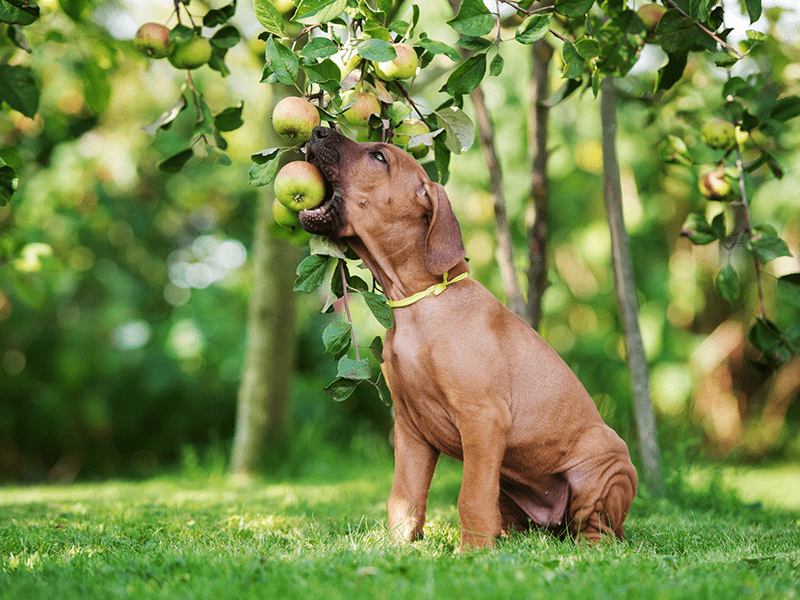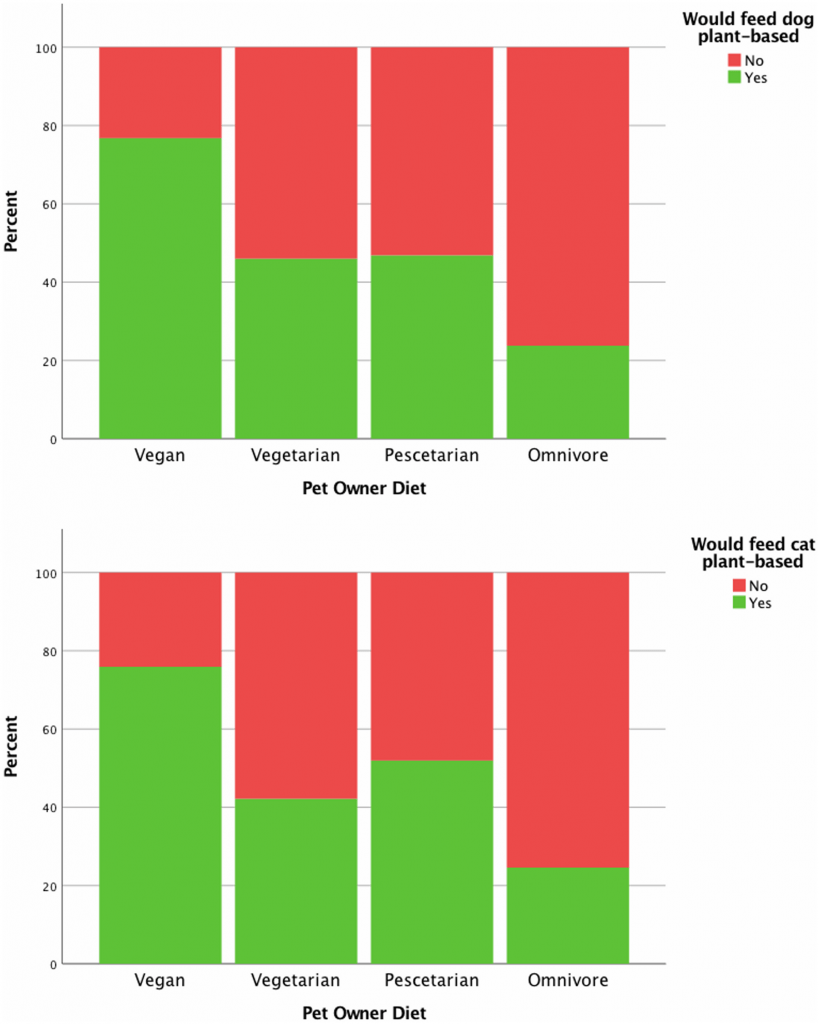
As humans we tend to humanize our pets, known as anthropomorphism. Birthday parties, outfits, special treats, Americans are truly making their pets part of the family. Nutrition and the desire to provide high-quality food is a booming business and with a growing prevalence of pet owners moving to a meat-less diet due to health, environment, or religious reasons, more and more pets are becoming vegan.
In a recent study (1), survey results show:
- 3% of dogs and 1% of cats in the USA are on a vegan diet
- 27% of pet owners that are vegan have a vegan pet
This trend is growing. More and more Americans are moving to a meat-less diet and survey results show the vast majority would feed their pet a plant-based diet.

There are risks in placing the obligatory carnivorous physiology of dogs and cats on a meat-less diet. Nutritional content of commercially available plant-based diets has not been firmly established with many choosing to prepare home-made. This can lead to insufficiencies in essential nutrients such as vitamins D and B12, magnesium, and calcium.
Vitamins D and B12 are involved in calcium metabolism, the innate immune response, DNA synthesis, fatty acid and amino acid metabolism, and magnesium is a enzymatic cofactor. Deficiencies in these nutrients are linked to cancer, IBD, heart and kidney disease, infections, anemias, nervous system disorders, and other diseases. Diet counceling and screening are advised for older pets and all vegan patients.
Reference:
- Dodd, S (2019) Plant-based (vegan) diets for pets: a survey of pet owner attitudes and feeding practices. PLOS One
Test For Essential Vitamins:
VDI offers multiple panels that evaluate the Essential Vitamins, with the core panels:
Essential Vitamins 1, Essential Vitamins 1+ Mg, and Essential Vitamins 2
